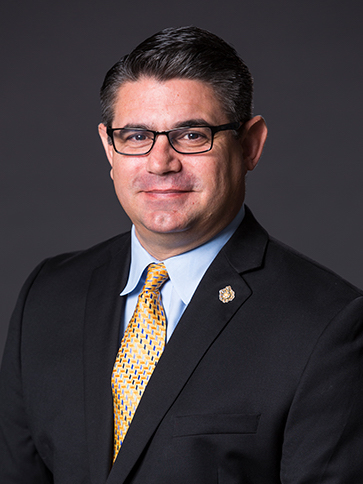Port of Long Beach’s Cameron: Led Clean Air Action initiatives
On May 10th, Port of Long Beach Executive Director Mario Cordero announced the passing of Rick Cameron, former Deputy Executive Director who died at the age of 51.
In his statement Cordero said: “We are saddened to hear of the untimely passing of Rick Cameron, our former Deputy Executive Director of Planning and Development at the Port of Long Beach. Along with Rick’s many friends, contacts and colleagues throughout the logistics industry and environmental community, we here at the Port will miss Rick’s warmth, intellect, and sense of dedication. He was a leader and respected for his expertise in environmentally sustainable development. His legacy carries on in the Port’s achievements in delivering on its lasting commitment to being the Green Port, and also in the many Port teammates and leaders whom he trained and mentored over his more than 24 years at the Port. Our thoughts are with Rick’s family at this difficult time.”

Cameron was a trail blazer in developing the Port’s Clean Air Action initiatives and as Deputy Executive Director he continued to implement the Port’s reduced emission goals.
This made him a pioneer not just at the Port of Long Beach but at ports across the United States.
The impact of Cameron’s leadership was felt around the world as other ports followed in the footsteps of the joint efforts by the Ports of Long Beach and Los Angeles.
Cameron would have appreciated the words of Port of Busan’s E.H. Lee, Director of Marketing, who told the Propeller Clubs of Northern California (PCNC) and Los Angeles and Long Beach on May 22nd about the regard held by Asian ports for the efforts of Cameron and his colleagues: ““I have to admit that we are following the examples of the Ports of Los Angeles and Long Beach. They are the leaders in reducing emissions and ports in Asia are following their example.”
Cameron privately admitted that he was on the receiving end of resistance by some people in industry to zero emission mandates of trucks and cargo-handling equipment.
As a result, he said he struggled to address the needs for an orderly transition for truckers, marine terminal operators and for harbor labor.
He confessed to friends that he often felt between a rock and a very, very hard place.
When Cameron arrived at the Port 24 years ago, it was at a time of growing public outcry from Southern California communities protesting respiratory problems caused by pollutants generated by harbor trucks, cargo-handling equipment and bunker fuel burning ships.
At that time, he was often a lonely voice for environmental change.
In 2023, he left the Port of Long Beach with the Port at the forefront of the zero-emissions movement.
His door was always open.
He helped promote new ideas.
His heart was always in the best place.
His many friends will miss this tireless and largely unsung public servant.
© Copyright 1999–2024 American Journal of Transportation. All Rights Reserved

